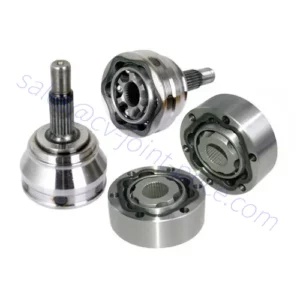There are quite a few indications that can point out a possible concern with your CV joint, suggesting the have to have for alternative. Below are some common indications to search out for:
1. Clicking or popping noises: 1 of the most popular indications of a failing CV joint is a clicking or popping sound when turning. You may well hear this sound precisely when generating sharp turns or during acceleration. The sounds generally raises in frequency as the joint deteriorates.
two. Vibrations or shuddering: If you observe vibrations or shuddering coming from the entrance of your car, especially through acceleration, it could be a indicator of a worn-out CV joint. The vibrations may possibly be additional pronounced at better speeds.
 three. Grease leakage: CV joints are secured by rubber boots, which are filled with grease to retain the joint lubricated. If you notice grease splattered about the region of the CV joint or notice grease leaking from the rubber boots, it suggests harm or put on to the CV joint, and it may will need alternative.
three. Grease leakage: CV joints are secured by rubber boots, which are filled with grease to retain the joint lubricated. If you notice grease splattered about the region of the CV joint or notice grease leaking from the rubber boots, it suggests harm or put on to the CV joint, and it may will need alternative.
four. Reduced maneuverability: A failing CV joint can impact the handling and maneuverability of your car or truck. You may possibly experience trouble steering or see that the vehicle feels unstable or unresponsive, specifically all through turns.
5. Axle or China cv joint distributor joint injury: If you visually examine the CV joint or axle shaft and detect obvious injury, such as cracks, tears, or excessive motion, it is a obvious sign that the joint requires alternative.
If you experience any of these signs and symptoms, it is recommended to have your motor vehicle inspected by a certified mechanic as quickly as feasible. They can adequately diagnose the problem and ascertain if the CV joint necessitates substitute. It is important to deal with CV joint difficulties promptly to reduce further more destruction, ensure protected driving problems, and avoid extra highly-priced repairs in the foreseeable future.